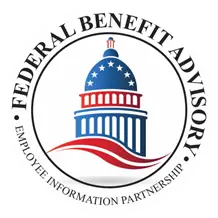Once you realize that you’re looking forward to retirement years before you’re actually eligible to retire, working (whether you love your job or not) becomes much less exciting. Instead, most of your days are spent counting down to the moment you can retire and collect annuity from the comfort of your own home. Eventually, you begin to consider early retirement.
What if we told you, though, that you may not have to wait as long as you previously thought?
Early retirement for federal employees is an option, though it can come with a cost.
This article will detail the options that are available to you, as well as explain what the potential costs and benefits are.
#1: Your Minimum Retirement Age and Immediate Retirement Age Are Two Different Things
According to the Office of Personnel Management, your minimum retirement age (MRA) determines whether you will receive retirement benefits at all as a FERS employee. If you retire before your MRA (as well as your service year requirement) is satisfied, you will not receive benefits.
On the other hand, early federal retirement is classified as any retirement taken by a federal employee before they meet their immediate retirement requirements. Immediate retirement is classified as retirement in which your benefits begin within thirty days of your departure.
As you may have guessed, your immediate retirement age and minimum retirement age are different numbers.
In terms of minimum retirement age, many people have different age and service requirements they must meet. For example, someone born before 1964 has an MRA of age 56, while someone born in 1964 has an MRA of age 56 and two months. Conversely, someone born in 1969 would have an MRA of 56 years and ten months, and so on.
For your immediate full retirement age, however, there are much fewer options. You must either be age 62 with five years of service, age 60 with twenty years of service, or at your MRA with anywhere from 10 to 30 years of service (in this case, your years of service determine the benefits you receive).
#2: There Are Three Types of Early Federal Retirement.
When people think about early federal retirement, they usually think of postponed retirement, which we will explain further. However, there are actually three different types of early retirement available.
Deferred Retirement
The most common type of early retirement, deferred retirement, allows federal employees to retire early and put off receiving their retirement benefits until they reach their immediate retirement age to avoid fees.
The requirements for this type of retirement are as follows:
- You may retire using postponed retirement at age 62 so long as you have at least five years of creditable service behind you.
- You may retire at your MRA with anywhere between ten and thirty years of federal service. However, you will be subject to a five percent reduction for each year under age 62.
- The above penalty does not apply if you have at least 20 years of service and postpone your benefits at least until you reach the age of 60.
People often confuse postponed retirement with deferred retirement as well, but you shouldn’t mistake the two. In general, they are extremely similar with one big difference: deferred retirement allows you to start your FERS pension back up later but you can’t restart your FEHB (Federal Employee Health Benefits).
With a postponed retirement, however, you can resume your FEHB coverage if you were still eligible for it when you left your job.
Early Retirement
Run-of-the-mill early retirement is available as well, but only under specific circumstances. You are only eligible for this type of retirement following specific involuntary separations from your job or after a voluntary separation during a significant reduction in force or reorganization.
Here are the requirements for early retirement:
- You must be either
- Fifty years old with at least twenty years of service
OR
- Any age with at least twenty-five years of service.
Disability Retirement
The third type of early retirement is disability retirement. This type of retirement is available to anybody at any age, given you have at least eighteen months of service behind you.
As you may have guessed, though, you do have to have been disabled while employed with the federal government or another civil service agency. Additionally, the disability must be expected to last for longer than a year, and your current employer has to certify that they can not accommodate nor reasonably reassign you.
#3: Your Retirement Benefits (Other Than Your Annuity) Can Be Affected by Early Retirement.
Certain federal benefits, such as your health insurance, won’t carry over if you take certain types of early retirement. That isn’t to say you can’t get them back (you can), but you won’t be able to for the duration that you aren’t getting paid your annuity.
Generally, this principle applies to postponed retirement (the only one where there can be a gap in your annuity payments). As previously stated, postponed retirement allows you to put off your annuity payments until a particular time to avoid penalties you might otherwise incur. If you leave federal service early, however, it halts your federal health benefits, among other things.
To elaborate, federal employees can keep their benefits when they retire (given that they do the proper paperwork and pay for them, of course). However, you aren’t allowed to do this with a postponed retirement account until your annuity begins to pay out.
Once your payouts begin, you will be allowed to reapply for those benefits, but in the meantime, you’ll need to find another way to receive health insurance coverage.
This same principle applies to other benefits as well, such as dental, vision, and TSP.
Conclusion
Early retirement can undoubtedly be beneficial, but being an early retiree isn’t for everyone.
This article serves as a guide to early retirement principles you may not have otherwise been aware of and helps you understand the pros and cons you might encounter should you decide to take your retirement early.
We understand how tempting it can be to take that early retirement, however, which is why we’re here to help. If you found that any of the information in this article was confusing, want help deciding if early retirement is right for you, or just want some assistance in planning your federal retirement in general, get in touch with one of our planners.
As always, we’re here to help you retire comfortably and securely, so don’t hesitate to contact us today!


